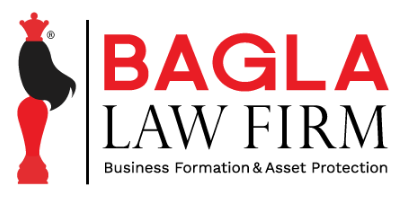

Since 2010, the Global Law Experts annual awards have been celebrating excellence, innovation and performance across the legal communities from around the world.
posted 2 years ago
A trademark is a word or design that identifies and distinguishes products or services in the marketplace. Sounds and combinations of words, symbols, letters and numbers, in addition to smells and shapes of packaging can also be distinctive marks. In short, a trademark is a brand. For example, if you were raising cattle you would want to design a brand from iron and use it to place an indelible mark on each or your cattle. Furthermore, you would want to promote and advertise your brand, and boost its reputation in every way you know how to increase the value of your cattle.
Depending upon 1) who you are, 2) how long you have been in business, and, 3) other particulars of your product and service market, your trademark(s) could be your most valuable asset. Whatever the case, you should project your mark to the public as being highly valuable and closely associate it with your reputation and goodwill.
Once you adopt a mark and use it in commerce you should use it properly. Before it is federally registered with the United States government, you should indicate it is a trademark by providing the superscript “™” after the mark. A trademark can be more specifically called a service mark in, for example, the name of a service business. In such a case use the “SM” superscript. (e.g. a particular client is ScooterPatrol You and your vehicle home safely SM , or without its catchphrase just ScooterPatrolSM).
After you apply for and receive a federal registration, a service mark or a trademark should include the superscript “®.” If you chose, you may indicate a mark is “registered U. S. Patent and Trademark Office.”
Federal registration provides offensive protection against “latecomers.” It will extend geographic ownership out to the four corners of the Untied States provided there are no first users that you may not know about. The best defensive protection is to conduct a name search or hire a professional to do so before you adopt a mark. Registration may even be applied for before you actually use a mark in commerce with a so called “intent to use” application provided for by 15 U.S.C. §1051(b), also called §1(b).
Federal registration could also prevent others from adopting confusingly similar Internet Domain Names.
More specifically, benefits of federal trademark registration include:
As with most business decisions, when to register becomes an economic cost-benefit analysis. If it were free, the obvious answer is probably early and often. The government fee is currently $335 per mark, per class of goods or services. Also note that design (logo) marks and word marks are considered separately even though a registered logo would convey some limited rights to the words contained therein. In addition to $335 per mark (word or design), per class law firms and lawyers will charge between $425 and $1,000 per mark to prepare all the documents needed for filing. You could complete the requirements yourself online that are probably only somewhat confusing to the layperson, however there are some benefits to hiring a professional, see below.
An application filed is no guarantee that that registration will be granted. A trademark examiner that is an actual attorney will search registered marks with applicable goods or services and apply the legal standards with basically comprises a “confusingly similar” test. The trademark examining attorney may also refuse registration based on any number of reasons or informalities. The applicant must then respond to the office action. Unfortunately, an attorney will need to be paid for this kind of work, typically charging $500 to $1,000 plus. Typically, the larger the law firm the more expensive.
Just like your tax specialist, doctor or other professional, once a relationship is established, a trademark attorney is useful to ask questions about infringers, or competitor’s marks. He or she may also provide general legal, business or branding advice. If you are doing business in international markets and need international trademark protection it will be essential to seek professional legal services.
This blog is made for educational purposes only as well as to give you general information and a general understanding of the law, not to provide specific legal advice. This information should not be used as a substitute for competent legal advice from a licensed professional attorney in your state.
Get the latest legal news and updates at Global Law Experts
Author


No results available
posted 4 days ago
posted 4 days ago
posted 4 days ago
posted 4 days ago
posted 4 days ago
No results available
Find the right Legal Expert for your business
Global Law Experts is dedicated to providing exceptional legal services to clients around the world. With a vast network of highly skilled and experienced lawyers, we are committed to delivering innovative and tailored solutions to meet the diverse needs of our clients in various jurisdictions.

Thinking of buying property in Brazil? Start with a full legal safety net.
✔️ Check title and ownership history
✔️ Verify no debts or disputes
✔️ Confirm zoning and permits.
#BrazilProperty #RealEstateInvesting #LegalDueDiligence #ForeignInvestment #PropertyLaw #GlobalRealEstate #InvestmentRisk #BrazilLaw

When your international business faces financial distress, quick action is key! 🔑 Negotiating with creditors, restructuring debt, and understanding insolvency laws can help regain stability. Global Law Experts is here to guide you through your options.
🌍Explore the details on our website.
🔗Link in bio
#GlobalLawExperts #CommercialLaw #BusinessLaw #LegalAdvice #BusinessGrowth #LegalTips #BusinessStrategy #LegalCompliance #Law #LegalKnowledge #LegalAwareness #Law101 #LegalEducation #IntellectualProperty

Thinking of buying property in Brazil? Don’t stop at the contract or key handover. Make sure the title is officially registered before calling it yours.
#BrazilRealEstate #PropertyLaw #GlobalInvestment #ForeignInvestors #LegalTips #DueDiligence #RealEstateRegistration #SecureInvestment

Getting a termination notice right now? Know your rights. Valid reason, fair process, proper notice they matter. Don’t let a bad dismissal walk away without accountability.
#EmploymentLaw #WorkerRights #Termination #LaborLaw #FairDismissal #WorkplaceJustice #LegalAwareness #GlobalWorkforce

Running a business is hard enough — lawsuits shouldn’t make it harder. 🚫 Protect your business with the right legal strategies and expert tools from Global Law Experts. Let’s secure your future together! 💼
🌍Explore the details on our website.
➡️www.globallawexperts.com
#GlobalLawExperts #CommercialLaw #BusinessLaw #LegalAdvice #BusinessGrowth #LegalTips #BusinessStrategy #LegalCompliance #Law #LegalKnowledge #LegalAwareness #Law101 #LegalEducation #IntellectualProperty #Infringed #Ecommerce #LegalBranding
Global Law Experts is dedicated to providing exceptional legal services to clients around the world. With a vast network of highly skilled and experienced lawyers, we are committed to delivering innovative and tailored solutions to meet the diverse needs of our clients in various jurisdictions.

Thinking of buying property in Brazil? Start with a full legal safety net.
✔️ Check title and ownership history
✔️ Verify no debts or disputes
✔️ Confirm zoning and permits.
#BrazilProperty #RealEstateInvesting #LegalDueDiligence #ForeignInvestment #PropertyLaw #GlobalRealEstate #InvestmentRisk #BrazilLaw

When your international business faces financial distress, quick action is key! 🔑 Negotiating with creditors, restructuring debt, and understanding insolvency laws can help regain stability. Global Law Experts is here to guide you through your options.
🌍Explore the details on our website.
🔗Link in bio
#GlobalLawExperts #CommercialLaw #BusinessLaw #LegalAdvice #BusinessGrowth #LegalTips #BusinessStrategy #LegalCompliance #Law #LegalKnowledge #LegalAwareness #Law101 #LegalEducation #IntellectualProperty

Thinking of buying property in Brazil? Don’t stop at the contract or key handover. Make sure the title is officially registered before calling it yours.
#BrazilRealEstate #PropertyLaw #GlobalInvestment #ForeignInvestors #LegalTips #DueDiligence #RealEstateRegistration #SecureInvestment

Getting a termination notice right now? Know your rights. Valid reason, fair process, proper notice they matter. Don’t let a bad dismissal walk away without accountability.
#EmploymentLaw #WorkerRights #Termination #LaborLaw #FairDismissal #WorkplaceJustice #LegalAwareness #GlobalWorkforce

Running a business is hard enough — lawsuits shouldn’t make it harder. 🚫 Protect your business with the right legal strategies and expert tools from Global Law Experts. Let’s secure your future together! 💼
🌍Explore the details on our website.
➡️www.globallawexperts.com
#GlobalLawExperts #CommercialLaw #BusinessLaw #LegalAdvice #BusinessGrowth #LegalTips #BusinessStrategy #LegalCompliance #Law #LegalKnowledge #LegalAwareness #Law101 #LegalEducation #IntellectualProperty #Infringed #Ecommerce #LegalBranding
Send welcome message